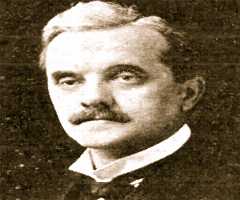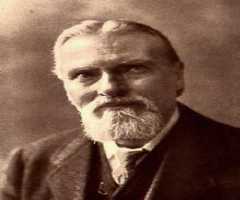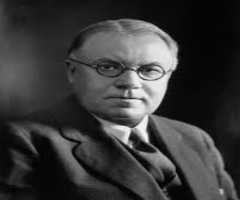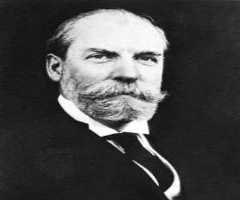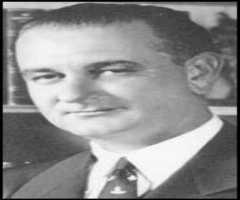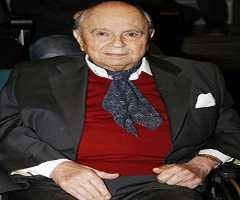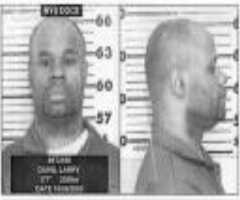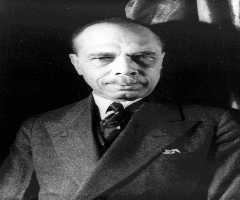Robert M. La Follette, Sr. Biography, Life, Interesting Facts
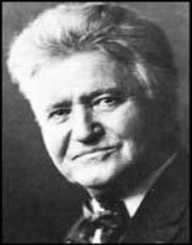
Birthday :
Died On :
Also Known For :
Birth Place :
Primrose, Wisconsin, United States of America
Zodiac Sign :
Early Life And Education
Robert Marion La Follette was born 14th June 1855, to Josiah and Mary La Follette. He was born in Wisconsin, United States. His family was farmers, although involved in local politics. Robert Marion La Follette had a difficult childhood, as his father died in 1856 when he was a baby, and as he grew up, he didn’t get on with his stepfather.
His stepfather died, and his mother sold the farm, and the family moved to Madison. Robert Marion La Follette went to the University of Wisconsin and graduated in 1879. He then studied law and was admitted to the bar. To pay for his tuition, he started teaching.
Career
Robert Marion La Follette won the Republican nomination for the general election as District Attorney in Dane County. He won the seat in 1880. He remained in the position for two terms and was then elected to the House of Representatives. He served three terms in the House.
While in the House of Representatives, Robert Marion La Follette took up the fight for Native American and African-American rights. He also supported a protective tariff, and he was appointed to the Ways and Means Committee, where he assisted in the draft of the Tariff Act of 1890. In 1890, amid a large swing to the Democrat party, La Follette lost his seat. He still successfully fought on behalf of minority groups.
Robert Marion La Follette returned to Madison after his defeat and began a private law firm. He also felt the Republican Party had moved away from its core values, and went about creating a group within the party that allowed voter control, rather than big business control. Robert Marion La Follette also took a stand against corruption within government and fought against it where ever he found it.
Over the next six years, Robert Marion La Follette created a faction within the Republicans called ‘The Insurgents”. They were party members who didn’t agree with the ‘old school’ of the party. The Insurgents’ support grew, particularly after the Panic of 1893.
Robert Marion La Follette continued to speak out for reform within the party, and in 1900, he traveled to 61 counties, speaking to over 200,000 people. He was elected Governor of Wisconsin by a large margin in 1900 and won again in 1904. When he was elected, Robert Marion La Follette set up a commission into the railroads, and also imposed a tax upon them. The traditional Republicans stopped the changes going through, but La Follette stuck with his principles and would not negotiate.
Robert Marion La Follette eventually got his reform legislation through by forming a coalition with insurgent Democrats. La Follette’s popularity continued to grow as he gathered more press coverage and more followers. During his term as Governor, Robert Marion La Follette worked diligently on many progressive reforms. Some of these included women’s suffrage, the first workers’ compensation system, and a minimum wage for workers. Whilst serving his first term as Governor, Robert Marion La Follette wrote and published, The Making of America, a ten-volume set.
In 1905, when Wisconsin’s legislature needed to elect a Senator, Robert Marion La Follette nominated himself and was elected to the State Senate. He continued as Governor until January 1906 to ensure his reforms were carried out, and then he stepped down from Governor and entered the Senate.
Robert Marion La Follette remained in the Senate until his death in 1925. He continued his progressive work, diligently campaigning for women’s suffrage and child labor laws, amongst other reform, and he strongly campaigned against America’s involvement in World War I.
Over the years, as well as continuing his work, Robert Marion La Follette continued to tour and speak to the public. He also began to publish La Follette’s Weekly Magazine to try and further his public forum. The publication is still in print today, now called The Progressive.
Robert Marion La Follette decided to run for president in 1911. In early 1912, he gave a speech which unfortunately was rambling and made no sense, due to his state of exhaustion and personal worries. His followers deserted him in droves, and his presidential campaign was left in tatters.
Robert Marion La Follette then went on to form his party, the Progressive Party, which several of the smaller progressive parties and movements joined, as a show of support. He came third in the presidential campaign and 1924 after the election, the Party disbanded.
Awards And Honors
In 1957, posthumously, Robert Marion La Follette was ranked one of the top five greatest U.S. Senators by the Senate Committee.
Personal
While he was studying at the University of Wisconsin, Robert Marion La Follette met Belle Case. The couple married in December 1881. Belle became a leader in the feminist movement and was a vocal advocate for women’s suffrage. She had a large influence on La Follette.
Robert Marion La Follette and Belle had four children, Robert, Philip, Fola, and Mary. After La Follette’s death, Belle and his two sons continued to lead his political party in Wisconsin, into the 1940s.
Legacy
Robert Marion La Follette has several buildings named after him, and also statues in Wisconsin. He led the way and became a voice for minority groups, as well as progressive political reform to look after the ‘underdog.’ He stuck to his principles and beliefs, and fought on, regardless of what people thought of him.



